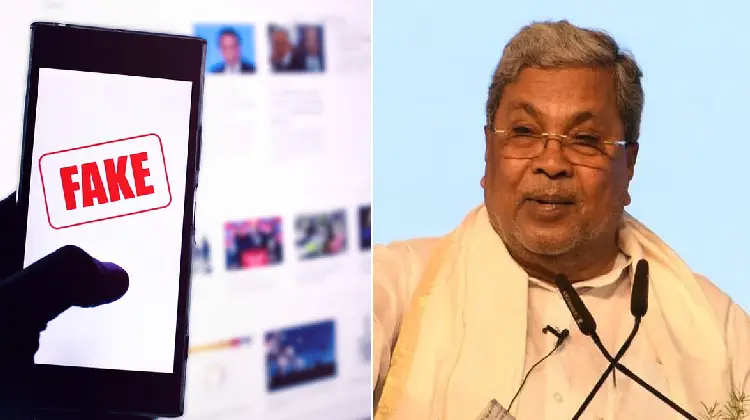In a significant move aimed at curbing the pervasive spread of misinformation and hate speech online, the Karnataka cabinet has given its nod to the draft of the Karnataka Misinformation and Fake News (Prohibition) Bill, 2025, and the Karnataka Hate Speech and Hate Crime Prevention Bill, 2025. This proposed legislation, which is poised to be one of India’s strictest anti-misinformation laws, introduces severe penalties, including imprisonment of up to seven years and fines of up to ₹10 lakh, for individuals found guilty of disseminating fake news and harmful content.
The draft bill, which has been under consideration for the past two years, targets a wide range of digital content deemed detrimental to public health, safety, law and order, or electoral integrity. It also specifically addresses content considered “anti-feminist,” obscene, or derogatory towards “Sanatan symbols.” This broad scope has already sparked a debate among digital rights organizations and free speech advocates, who caution against potential misuse and censorship.
Under the proposed law, “misinformation” is defined as “false or misleading factual statements made knowingly or recklessly,” while “fake news” encompasses misquoting individuals, manipulated audio/video content, and deliberate fabrication. The bill explicitly excludes satire, opinions, or religious/philosophical discourse not intended as factual claims, aiming to provide some clarity on its scope.
A central feature of the bill is the proposed establishment of a six-member Fake News on Social Media Regulatory Authority. This authority, to be chaired by the Minister for Kannada and Culture, will include representatives from the Legislative Assembly, Legislative Council, social media platforms, and an IAS officer as secretary. Its mandate will be to enforce a complete ban on fake news, monitor and remove content deemed derogatory or anti-women, direct social media platforms to take down posts that may disturb public peace, and ensure only verified information is shared online.
To expedite legal proceedings, the bill also proposes setting up Special Courts, to be presided over by Sessions Judges, dedicated to trying offenses under the law. These offenses will be classified as cognizable and non-bailable, with strict conditions for granting bail. Special Public Prosecutors with at least seven years of experience will be appointed to handle these cases. The Special Courts will also have the authority to issue “Correction Directions” to counter misinformation and “Disabling Directions” to block access to offending content, with failure to comply potentially leading to additional jail time and fines up to ₹25 lakh.
Moreover, the draft legislation extends accountability not just to individuals but also to companies and social media platforms. Companies may face penalties if they fail to remove harmful content, and action can be taken against directors and employees present during the violation, extending liability within corporate structures.
While the Karnataka government asserts that existing measures are insufficient to tackle the burgeoning problem of fake news in the digital age, critics, including organizations like the Internet Freedom Foundation (IFF), have urged for wider public consultation, expressing concerns that the broadly drafted criminal provisions could lead to partisan or selective enforcement and threaten free speech. The Karnataka IT Minister, Priyank Kharge, has also reportedly called for broader consultations within the government regarding the bill’s provisions, particularly concerning the jurisdiction of the Kannada and Culture department in this area.
The bill is currently in the draft stage and is expected to be introduced in the assembly after cabinet approval, potentially setting a significant precedent for how Indian states regulate online content.
Key Highlights:
- The Karnataka cabinet has approved a stringent draft bill, the Karnataka Misinformation and Fake News (Prohibition) Bill, 2025, to criminalize online fake news and hate speech.
- The bill proposes severe penalties, including up to seven years in jail and fines of up to ₹10 lakh, for individuals spreading misinformation, hate speech, or content deemed anti-feminist or derogatory towards religious symbols.
- It mandates the establishment of a six-member “Fake News on Social Media Regulatory Authority” to monitor and ban harmful content and proposes Special Courts for expedited trials with cognizable and non-bailable offenses.
- While the government aims to curb online harm, digital rights organizations and critics have raised concerns about potential misuse and threats to free speech, calling for wider public consultation.

